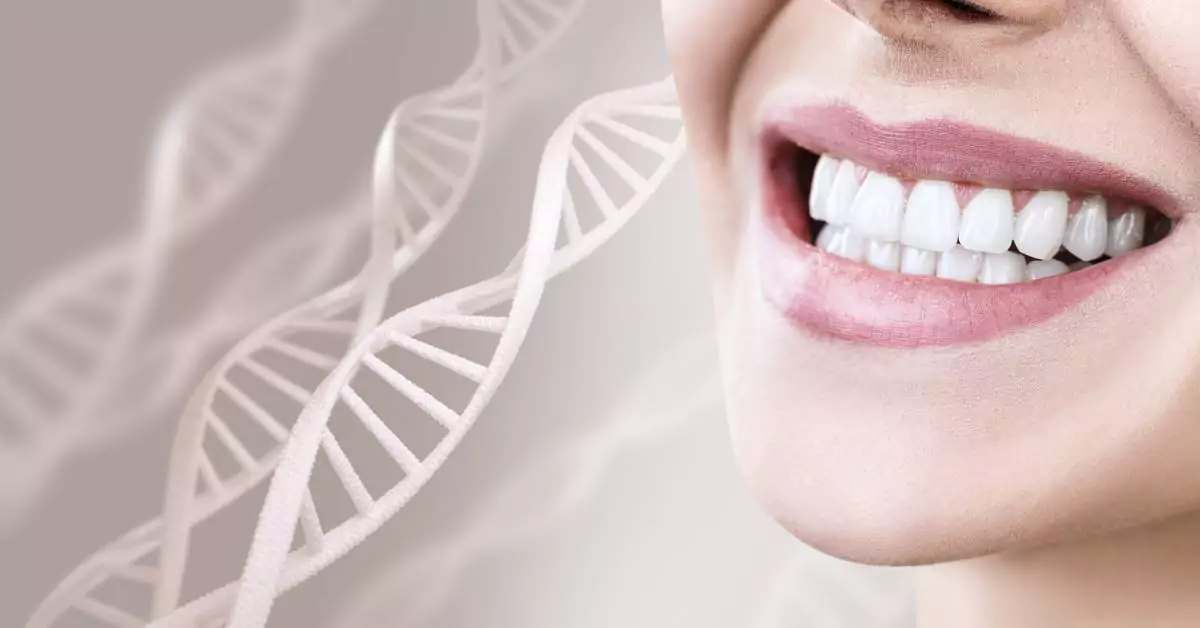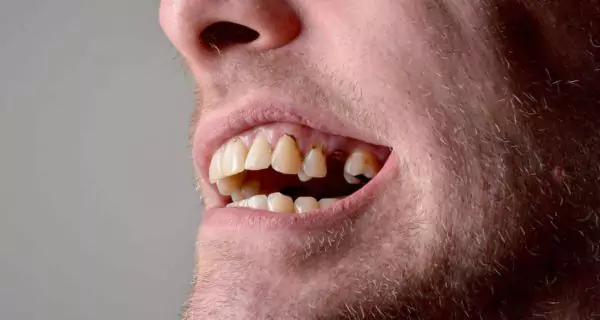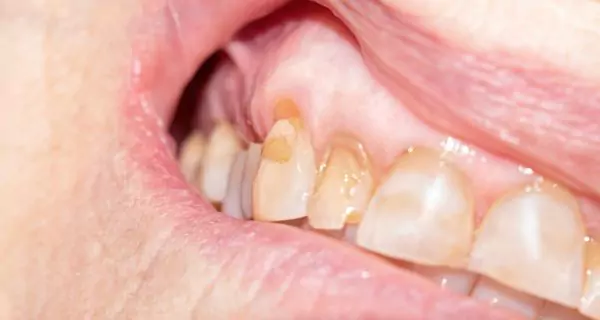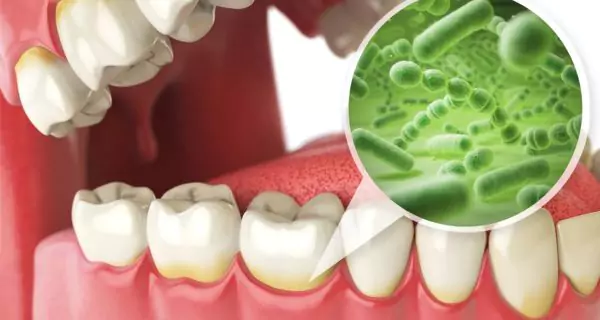Last Updated on: 19th September 2025, 12:30 pm
DNA can influence oral health by determining traits like enamel strength, saliva composition, tooth shape, and immune response. These genetic factors can make teeth more prone to cavities, gum disease, or dry mouth. While DNA sets the baseline, daily habits and dental care play a key role in preventing oral health problems.
Tooth decay is one of the most common chronic worldwide health problems . In the United States alone, nearly 90% of adults aged 20 to 64 have had cavities in their permanent teeth, according to the CDC.
Because it’s so widespread, many people wonder: Is tooth decay hereditary? While cavities themselves aren’t inherited like eye color or hair type, genetics can influence certain traits that make you prone to developing them, such as enamel strength, saliva production, and even sugar cravings.
In this article, we’ll explore the science behind genetic tooth decay, how your DNA might be affecting your oral health , and what you can do to protect your smile, no matter what genes you were born with.
What does genetic tooth decay mean?
Genetic tooth decay refers to an increased risk of developing cavities due to inherited traits. These don’t cause decay on their own, but they can make your teeth more vulnerable to it.
Some of the inherited factors that can influence dental health include:
- the shape and structure of the teeth and jaw
- the thickness and quality of enamel and dentin
- saliva’s quantity and protective properties
- types of bacteria that thrive in the mouth
- your natural preference for sugary foods
While environmental factors like diet, oral hygiene, and dental care habits play a major role in oral health, genetics can set the stage for how your teeth and gums respond to those factors.
How genetics affects your oral health?
While tooth decay isn’t inherited in the traditional sense, there is a clear connection between genes and oral health. Understanding your personal risk factors will help you make smarter decisions about your dental care.
Here are some of the main ways genetics can influence your teeth.
Enamel and dentin strength
The strength of teeth is heavily influenced by the quality of the enamel and dentin, the two protective layers of the tooth.
- Enamel is your first line of defense against cavities. Genes like AMELX, ENAM, and MMP20 are involved in its formation. If your enamel is naturally thin or soft, acids and bacteria can wear it down more easily.
- Dentin is softer and more porous than enamel. The DSPP gene plays a role in dentin development. If dentin is weakened, your teeth become more sensitive and prone to decay.
Genetic conditions that affect tooth structure
Some people are born with inherited disorders that weaken their teeth from the start, increasing their risk of cavities even with excellent oral hygiene. These include:
- Amelogenesis imperfecta: enamel is underdeveloped or missing.
- Dentinogenesis imperfecta: dentin is fragile and discolored.
- Enamel hypoplasia: enamel forms unevenly, creating rough surfaces that trap plaque and bacteria.
These conditions require early dental intervention, including sealants, fluoride treatments, and a custom care routine.
What can you do if your enamel or dentin is weak?
If your enamel or dentin is naturally weaker due to your genes, don’t worry; there are still steps you can take to protect your teeth:
- Brush twice a day with fluoride toothpaste
- Floss daily to remove plaque between teeth
- Use remineralizing toothpaste to help rebuild enamel
- Ask your dentist about sealants, especially if you or your child has deep grooves in your molars
Saliva quality and quantity
Saliva plays a crucial role in protecting your teeth. It washes away food particles, neutralizes acids, and remineralizes enamel.
Not everyone produces saliva in the same quantity or quality. Some people naturally produce more saliva that’s rich in minerals and immune-supporting proteins, while others may have low saliva flow or dry mouth (xerostomia), making them more vulnerable to cavities.
Genetic variations can also influence the proteins found in saliva. Variants in genes like HTN, MUC7, PRB, and AMY1 affect how well one’s saliva defends against bacteria and supports enamel health.
How to support your saliva:
- Stay hydrated throughout the day
- Eat a healthy diet with fresh fruits and vegetables
- Avoid tobacco, which can reduce saliva flow
- Talk to your dentist about dry mouth products (e. g. Biotène)
- Chew gum or mints with xylitol, which can boost saliva production naturally
Oral microbiome balance
Your mouth is home to millions of bacteria, and not all of them are harmful. A healthy balance helps protect your teeth. But genetics can affect which types of bacteria are more dominant in your mouth.
Some people are more likely to host cavity-causing bacteria, like Streptococcus mutans, while others have more protective, beneficial bacteria. Your immune system, also influenced by your DNA, plays a role in managing these bacterial populations.
How can you keep a healthy oral microbiome?
- Stick to a solid oral hygiene routine: brushing, flossing, and rinsing
- Limit sugar and processed foods, which feed harmful bacteria
- Use antibacterial mouthwash if recommended by your dentist (like Listerine Total Care)
- Ask your dentist about oral probiotics, especially if you get cavities often
Sugar cravings and genetic taste preferences
Certain genes influence how sensitive you are to sweet flavors and how much pleasure you get from sugary foods. This can lead to more frequent sugar intake, which increases acid production in the mouth and the risk of tooth decay, especially if your oral hygiene isn’t great
Tips if you love sugar
- Slowly reduce your sugar intake
- Replace sweets with healthier options like fruit
- Rinse or brush your teeth after eating sugary foods
- Use xylitol gum after meals to help neutralize acids
Tooth shape, alignment, and jaw structure
The shape of your teeth, how they fit together, and even the size of your jaw are largely determined by genetics; they all impact one’s risk of cavities.
- Crowded or crooked teeth are harder to clean, making it easier for plaque to build up.
- Bad bites (malocclusions) can cause uneven wear, leading to enamel loss or fractures.
- Deep grooves or sharp cusps can trap bacteria and food debris.
Genetic mutations can also lead to dental anomalies such as dental agenesis (absence of teeth), supernumerary teeth, or abnormal root formation, further complicating oral care.
What can you do about these structural issues?
- Take children to a pediatric dentist early to monitor jaw and tooth development
- Visit an orthodontist if you notice bite problems or crowded teeth
- Correct harmful habits early (e.g., thumb sucking or poor tongue posture)
- Ensure a calcium-rich diet in childhood to support strong teeth
- Ask about sealants to protect deep grooves in molars
Nature vs. nurture: can you prevent genetic tooth decay?
Yes, you can. While your genes may increase your risk for cavities, they don’t determine one’s dental future. What truly makes the difference are your daily habits.
Here’s what you can do to stay ahead of tooth decay:
- Brush your teeth twice a day with fluoride toothpaste
- Floss daily to remove plaque between your teeth. See Dental Floss Here.
- Limit your intake of sugary or acidic foods and drinks
- Use a remineralizing or fluoride mouthwash. See Mouthwash Here.
- Stay well hydrated to support healthy saliva flow
- Visit your dentist regularly for cleanings and checkups
Even if you didn’t inherit perfect teeth, a good oral care routine can help you maintain a healthy and strong smile. With the right tools and consistency, prevention is always within reach.
Should you get genetic testing for oral health?
DNA tests now can analyze your saliva to identify your risk for cavities, gum disease, or dry mouth. They can be done from home and sent to a lab.
While these tests may offer insight, they’re still not 100% reliable. They often have limited accuracy and can produce false positives or negatives because:
- The oral microbiome is complex and varies from person to person
- Genetics is just one piece of the puzzle
- Lifestyle, diet, and habits play a huge role
These tests may be helpful if you have frequent dental issues despite good habits or a strong family history of oral disease. For now, the best approach is still personalized care guided by your dentist.
Conclusion
Your genes can influence many things, like how strong your enamel is, how your saliva works, or what kind of bacteria live in your mouth. What we call genetic tooth decay is an inherited tendency that can increase your risk of cavities.
But having a genetic risk doesn’t mean you’re destined to have cavities. Tooth decay depends not just on what you inherit, but on how you care for your teeth every day.
With good oral hygiene, healthy eating habits, and regular dental visits, you can protect your smile no matter what your DNA says. In the end, your genes may be the starting point, but it’s your actions that shape your dental future.
Frequently Asked Questions
Why do I get cavities even though I brush every day?
Why do some people never get cavities, even with bad hygiene?
Why do I always get cavities between my teeth?
Do cavities from genetics get worse with age?
Can baby teeth be affected by genetic decay?
Voice and Search (Q&A)
Is tooth decay genetic?
Tooth decay isn’t directly genetic, but genes can affect enamel strength, saliva quality, tooth shape, and sugar cravings — all of which raise your risk for cavities.
How can I prevent tooth decay if it runs in my family?
Brush twice a day with fluoride toothpaste, floss daily, limit sugary foods, stay hydrated, and visit your dentist regularly. Sealants and fluoride treatments can also help.
What genes are linked to weak enamel?
Genes like AMELX, ENAM, and MMP20 affect enamel formation. Variants in these genes can make enamel thinner or softer, increasing cavity risk.
Share
References
1. Bretz, W. A., Corby, P., Schork, N., & Hart, T. C. (2003). Evidence of a contribution of genetic factors to dental caries risk. Journal of Evidence-Based Dental Practice, 3(4), 185–189. https://doi.org/10.1016/j.jebdp.2003.11.002
2. Cogulu, D., & Saglam, C. (2022). Genetic aspects of dental caries. Frontiers in Dental Medicine, 3. https://doi.org/10.3389/fdmed.2022.1060177
3. MouthHealthy. (n. d). Genetics and oral health. Oral Health Information From the ADA. https://www.mouthhealthy.org/all-topics-a-z/genetics-and-dental-health
4. Opal, S., Garg, S., Jain, J., & Walia, I. (2015). Genetic factors affecting dental caries risk. Australian Dental Journal, 60(1), 2–11. https://doi.org/10.1111/adj.12262
5. Shaffer, J. R., Wang, X., McNeil, D. W., Weyant, R. J., Crout, R., & Marazita, M. L. (2015). Genetic Susceptibility to Dental Caries Differs between the Sexes: A Family-Based Study. Caries Research, 49(2), 133–140. https://doi.org/10.1159/000369103
-
Dr. Yeidy Carolina Mesa [Author]
DDS Yeidy Carolina Mesa Passionate Dentist | Advocate for Accessible Oral Health Education Graduating from Universidad CES in 2022, I am a dedicated general dentist with a lifelong passion for helping others and making a meaningful impact in the world. My journey into dentistry began at the age of 7, inspired by my own experience with braces and overcoming a fear of the dentist. This personal journey shaped my mission to help patients conquer their own dental anxieties and embrace a healthier,...
View all posts
-
Nayibe Cubillos M. [Medical Reviewer]
Pharmaceutical Chemestry |Pharmaceutical Process Management | Pharmaceutical Care | Pharmaceutical Services Audit | Pharmaceutical Services Process Consulting | Content Project Manager | SEO Knowledge | Content Writer | Leadership | Scrum Master
View all posts
A healthcare writer with a solid background in pharmaceutical chemistry and a thorough understanding of Colombian regulatory processes and comprehensive sector management, she has significant experience coordinating and leading multidisciplina...





















